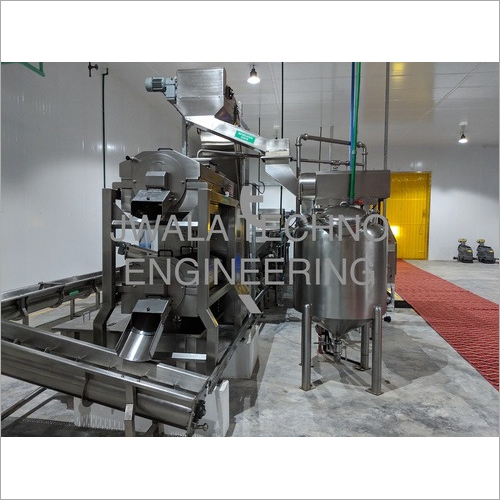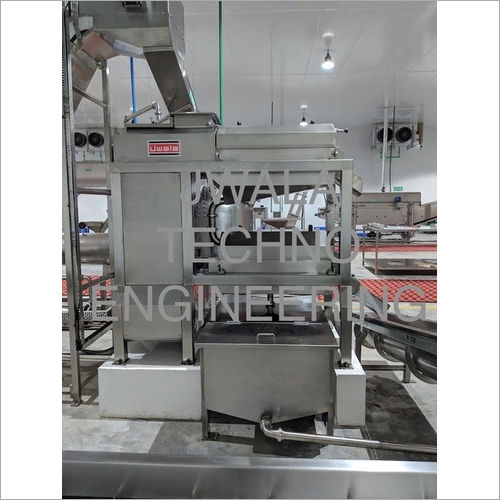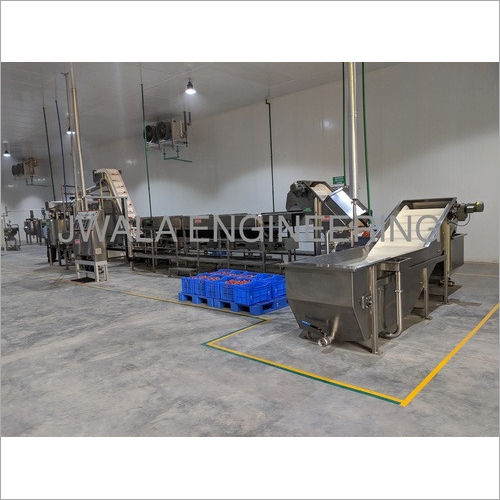
Tomato Paste Processing Plant
Product Details:
- Material Stainless Steel
- Capacity 0.5-20 T/hr
- Automatic Yes
- Warranty 1 year
- Click to view more
Tomato Paste Processing Plant Price And Quantity
- 1 Plant
- 5000000 INR/Plant
Tomato Paste Processing Plant Product Specifications
- Yes
- Stainless Steel
- 1 year
- 0.5-20 T/hr
Tomato Paste Processing Plant Trade Information
- Mumbai
- Letter of Credit (L/C)
- 3 Months
- Middle East, Asia, Africa
- All India
Product Description
Tomato Paste Processing Plant
We offer automatic and semi-automatic plants for tomato processing. Tomato Ketchup, Tomato Puree, Tomato Powder and Tomato Paste are common forms of processing of tomatoes.
Capacity of the plant ranges from 500 kgs per hour to 20,000 kgs per hour of tomatoes.
This plant includes the following machinery:
PREPARTION SECTION
- Washer (for thorough washing of tomatoes)
- Inspection Conveyor (for manual inspection and sorting of tomatoes)
- Elevator (to feed to the hot break system)
- Hot Break System (crushing and instant heating of crushed tomatoes to retain pectin)
- Pulper (for removal of seeds and getting fine pulp as output)
PROCESSING SECTION
- Standardisation Tanks (for adding ingredients required for preparing ketchup/sauce)
- Vacuum Evaporators (for concentration under vacuum)
- Pasteuriser (to pasteurize the tomato paste / sauce / ketchup)
FILLING & PACKAGING
- Aseptic Bag Filling (for filling tomato paste in aseptic bags)
- Automatic Can Filling (for filling tomato puree or tomato paste in tin cans)
- Bottle Filling (for filling tomato sauce or tomato ketchup in glass or PET bottles)
FAQs
How do you increase the shelf life of tomato paste?
Pulps treated with higher convergence of sodium benzoate were tracked down negligible changes of substance constituents at lower temperature as to higher temperature. The outcomes uncovered that higher convergence of sodium benzoate and capacity at-10 degree C may be a superior way for long haul safeguarding of tomato mash.
What is the best preservative for tomato paste?
A few examinations have been depicted the utilization of synthetic additives like sodium benzoate, and sodium Meta bisulfite, for readiness of tomato juice, glue, etc. Hossain et al., found sodium benzoate would do well to added substance as analyzed potassium metabi-sulfite and sorbic corrosive for protection of tomato juice.
Why is citric acid added to tomato paste?
Adding the suggested measure of lemon juice (or citrus extract) brings down the pH of all tried assortments enough to take into consideration safe bubbling water shower canning. Acidifying all tomatoes currently is suggested on the grounds that it considers safe handling in a bubbling water shower canner (and for a protected short cycle in a strain canner).

Price:
- 50
- 100
- 200
- 250
- 500
- 1000+






 Call Me Free
Call Me Free
